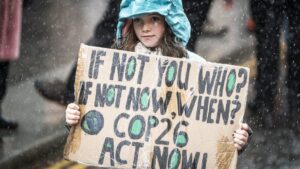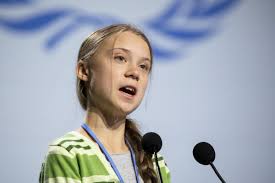
Credit: PA
‘As we venture into an uncertain century, we should be as concerned about the future of our children and grandchildren, as we are respectful of the past of our dead grandfathers.’
———
We revere the soldiers who died in the First World War. Many villages display the metal silhouette or outline of a soldier with backpack, head bowed, resting gun at his feet.
The figure first appears to mark the centenary of the end of the conflict, in 2018. But far from 2018 marking the last great commemoration of men so distant that none of their surviving contemporaries is still alive, it actually launched a new age of remembering and respect.
The figures reappeared every year in the approach to Armistice Day. And now more and more villages are making them a permanent feature, a dignified year-round reminder of a lost generation, much more conspicuous than churchyard war memorials.
We are past learning lessons from the Great War, unfortunately; each new war underlines our inability to do so. Today all we can do is pay tribute, and take the annual pledge never to forget those ordinary men from our communities. 
But why stop with honouring past generations? Should we not give equal attention to people as far in the future as those soldiers are behind us, to whose lives we can make a difference?
The guns finally fell silent in France on November 11, 1918, 103 years ago. Go forward by as many years and the world in 2125 is too distant to contemplate. So let’s bring this time period forward to a generation more easily imagined, say 60 years from now. It’s the age of our grandchildren, those already with us now and those yet to come.
We already worry about their future. There are about 14 million grandparents in the UK. Many of them are close relationships with their grandchildren. And it’s reasonable to say that many have a deeper level of concern for them, because they spend so much time with them and come to know them so well.
In the past grandparents and grandchildren lived closer together, but they weren’t needed so much for childcare. Mothers tended to do that because they weren’t working.
 Today about 40% of grandparents – about five million – provide regular care to their grandchildren, according to a YouGov poll for Age UK carried out in 2017. And the vast majority (89%) of those who provide regular care do so at least once a week.
Today about 40% of grandparents – about five million – provide regular care to their grandchildren, according to a YouGov poll for Age UK carried out in 2017. And the vast majority (89%) of those who provide regular care do so at least once a week.
Almost nine out of 10 (89%) of all UK grandparents – including those who do not provide regular childcare – feel close to their grandchildren, according to the survey, with a third of those playing the role of confidant for grandchildren with worries or problems.
So, just as many people can trace a direct link back to the First World War through their antecedents who fought and served there, an equally large number can imagine their family members progressing into the next century. They can contemplate their school age grandchildren growing up and confronting the world’s problems, and the world that will face their children in turn. And the biggest of those problems must be a climate change.
Should we have a day commemorating the children yet to be born? (There already is a Grandparents’ Day, in October.) Would it concentrate our minds, as players already invested in this great futurology game? After all, we can do nothing for the lost millions from 1914 to 1918, but we have the power to make the world of two generations from now a better place to live in.
But perhaps not just one day in the year. We need the equivalent of the statue of the symbolic soldier, now left up all year round on the village green. And we have it, so far uniquely, in Wales, in the Future Generations Commission.

Wales Future Generations commissioner Sophie Howe
The Well-being of Future Generations Act requires public bodies in Wales “to think about the long-term impact of their decisions, to work better with people, communities and each other, and to prevent persistent problems such as poverty, health inequalities and climate change.”
As soon as she took up her appointment in 2016, the current Future Generations commissioner Sophie Howe was warning of the peril of climate change. “There is no doubt that it’s the greatest challenge facing future generations and action is urgently needed across the public sector to reduce our emissions and its impacts,” she wrote.
“By the time my eldest child is 50 we will be witnessing the consequences of our collective failure to cut emissions with flooding and storms, droughts and wildfires causing global havoc.”
A Wellbeing of Future Generations Bill sponsored by Lord Bird and Simon Fell MP is awaiting its second reading in the House of Commons. Scotland, Ireland and New Zealand are showing interest in similar legislation.
Lord Bird, founder of the Big Issue and cross-bench peer in the House of Lords recently told the Future Generations Commission in Wales: “… I believe what you are doing in Wales is one of the most profound changes that has ever been made. I want to help the (Well-being of) Future Generations Act to go all over the place. I want it up there. I want it up there in Scotland, I want our friends in Ireland to be doing it, I want our friends in France, and Italy, and Germany doing it because we owe it everybody, wherever they come from. The work that is being done here (in Wales), by the Commissioner down here is gold dust. It has to be propagated about and it has to go mainstream…”

Climate activist Greta Thunberg
Throughout the ages parents and grandparents have fretted about the life to come of their children, and their children’s children, but in a less precise way. They faced the traditional scourges of war, want, disease, famine and social upheaval. Now it’s different. For the first time since we’ve been able to consider ourselves a mature, developed society, we face the likelihood of a much degraded world – and many paint an even bleaker picture – unless we act in the next few years.
As we venture into an uncertain century, we should be as concerned about the future of our children and grandchildren, as we are respectful of the past of our dead grandfathers.
